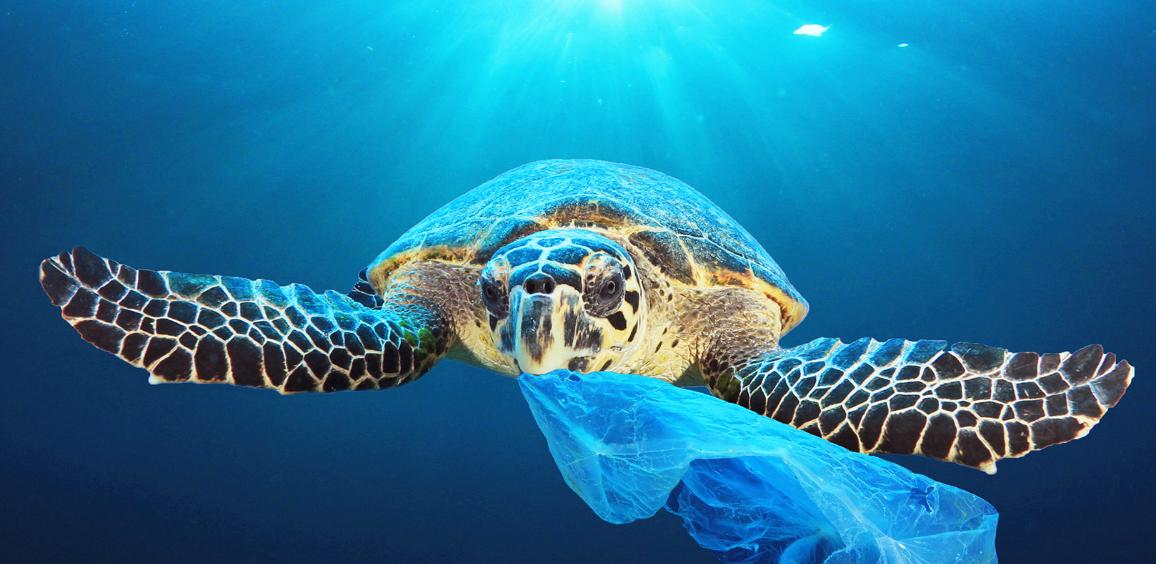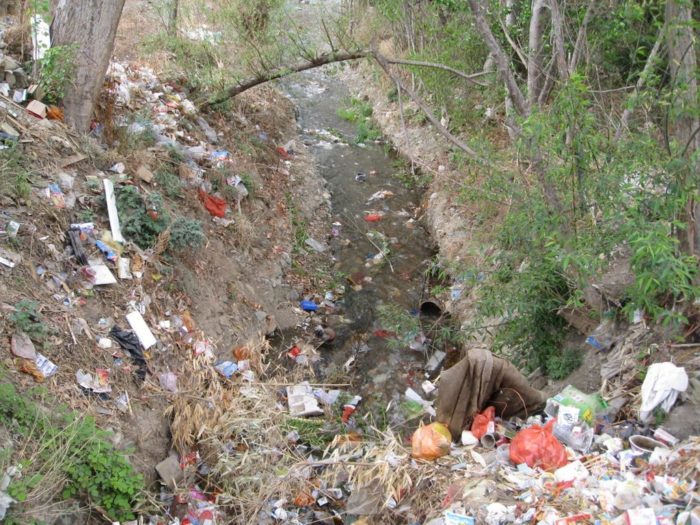EU Parliament to ban single-use and throwaway plastics by the end of 2021
EU Parliament to ban single-use and throwaway plastics by the end of 2021
· Single-use plastic cutlery, cotton buds, straws and stirrers to be banned by 2021
· Sing· 90% collection target for plastic bottles by 2029
· More stringent application of the “polluter pays” principle

Due to its slow rate of decomposition, plastic accumulates in seas, oceans and on beaches© AP Images/European Union-EP
On Wednesday, Parliament approved a new law banning single-use plastic items such as plates, cutlery, straws and cotton buds sticks.
560 MEPs voted in favour of the agreement with EU ministers, 35 against and 28 abstained.
· Single-use plastic cutlery (forks, knives, spoons and chopsticks)
· Single-use plastic plates
· Plastic straws
· Cotton bud sticks made of plastic
· Plastic balloon sticks
· Oxo-degradable plastics and food containers and expanded polystyrene cups
New recycling target and more responsibility for producers
Member states will have to achieve a 90% collection target for plastic bottles by 2029, and plastic bottles will have to contain at least 25% of recycled content by 2025 and 30% by 2030.
The agreement also strengthens the application of the polluter pays principle, in particular for tobacco, by introducing extended responsibility for producers. This new regime will also apply to fishing gear, to ensure that manufacturers, and not fishermen, bear the costs of collecting nets lost at sea.
The legislation finally stipulates that labelling on the negative environmental impact of throwing cigarettes with plastic filters in the street should be mandatory, as well as for other products such as plastic cups, wet wipes and sanitary napkins.
Quote
Lead MEP Frédérique Ries (ALDE, BE) said: “This legislation will reduce the environmental damage bill by €22 billion - the estimated cost of plastic pollution in Europe until 2030.
Europe now has a legislative model to defend and promote at international level, given the global nature of the issue of marine pollution involving plastics. This is essential for the planet.”
Background
According to the European Commission, more than 80% of marine litter is plastics. The products covered by this new law constitute 70% of all marine litter items. Due to its slow rate of decomposition, plastic accumulates in seas, oceans and on beaches in the EU and worldwide. Plastic residue is found in marine species – such as sea turtles, seals, whales and birds, but also in fish and shellfish, and therefore in the human food chain.

Plastics dumped along a creek. Credit: global water forum/Wikimedia Commons
Greece will ban plastic in the public sector and the procurement of single-use plastics will end as of February 1, 2021, Natural Environment and Waters Secretary General Constantine Aravossis announced on Wednesday.
With a circular sent to all state agencies, the regulation voted by Parliament in October of 2020 will now go into effect, putting an end to the procurement of ten different types of single-use plastics, as per European Union directives.
As of July 3, 2021, specific disposable plastic products — such as forks, knives, spoons, chopsticks, plates, straws, food, drink stirrers and beverage containers made of styrofoam — will be banned.
According to the Environment and Energy Ministry, the public sector ban “is the first significant step toward ending the use of disposable plastics in Greece, expected to be fully implemented as of July 3, 2021.”
As of February 1, 2021, the regulation will nullify purchase orders by state agencies for plastic cutlery, plates, straws and drink stirrers, styrofoam food and drink containers and their lids, and all other materials made of non-biodegradable plastic.
July 3, 2021 the key date
The official Ministry circular says that the regulation does not apply to the procurement of plastics for state contracts which are already in process.
With the new bill, Greece will be in harmony with the decisions that have been taken at the EU level on the issue for protection of the environment.
Businesses will be able to supply the above plastic items to consumers, however, until their supplies are depleted.
Also, as of July 3, 2021, the disposal of some biodegradable plastics will also be prohibited. Bags that were initially presented as an “ecological” alternative to ordinary bags have now been found to be simply disintegrating into smaller pieces that are much more difficult to collect.
As of July 1st, municipalities across Greece must equip all playgrounds and municipal sports facilities with drinking water taps, so that there will be no need for the use of bottled water.
Beginning on January 1st, 2022, an environmental tax will be imposed on plastic cups and lids, as well as on disposable food containers. The tax proceeds will go to a special “Green Fund” for actions to protect the marine environment.
At the same time, the bill stipulates that by 2023, the producers of disposable products must either create their own recycling systems or participate in an existing one.


